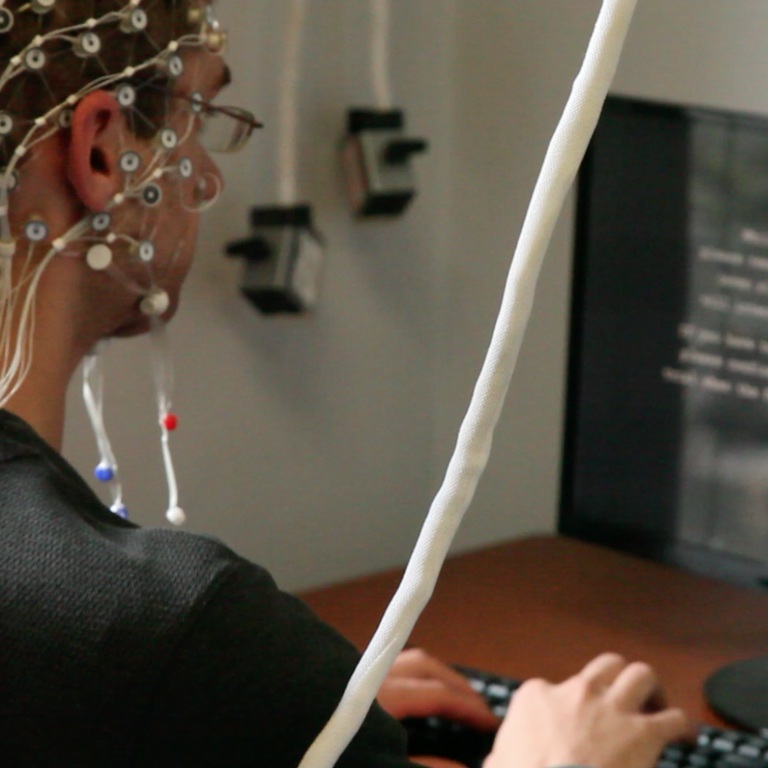Nic M. Weststrate is an Assistant Professor of Educational Psychology and a Member of the Center for Research on Health & Aging at the University of Illinois Chicago. His research examines social and personal resources that support the development, manifestation, and transmission of wisdom across the lifespan and between generations. In this conversation, we discuss his research on intergenerational wisdom-and his Chicago-based community-engaged ethnographic experiment called The LGBTQ+ Intergenerational Dialogue Project.
My favorite takeaway from this conversation "Wisdom benefits more than just the person who holds it. It's something that benefits people around a wise individual as well as society as a whole"
Interview transcript:
Nic Weststrate: I've always really been interested in how people grow from or through adversity. That's been something that's intrigued me my whole life, but I’m interested in this wisdom pathway, which I think is probably the rarest pathway of them all. Hi, I'm Nick Weststrate. I'm an Assistant Professor in the Department of Educational Psychology at the University of Illinois, Chicago. I'm also an Affiliate Faculty in the Department of Psychology in their Community in Applied Developmental Psychology program, and a member of the Center for Research on Health and Aging.
Jean Matelski Boulware: How did you begin studying wisdom and what kind of trajectory, I guess, took you to this space?
Weststrate: I'm interested in the idea that people may experience the same hardship, but developmental trajectories that follow from experiencing that hardship can be very different. You have someone who experiences adversity and becomes embittered or depressed. Other people who cope with it in a particular way and maybe become happy, happier, or it sustains their well-being in a different way, and then others who maybe become wiser. And of course, you can be multiple things at the same time.
I wanted to know what the mechanisms were or what predicted traveling down this pathway towards wisdom. And wisdom, I think was interesting to me because I was always also interested in aging. And wisdom is often associated with aging, or so we think.
And also unlike maybe well-being, wisdom benefits more than just the person who holds it. It's something that benefits people around a wise individual as well as society as a whole. I think investing and understanding the mechanisms that support the development of something like wisdom is a worthwhile investment, especially in our very fraught world where we could really benefit from more wisdom.
I think what brought me to wanting to study the transmission of wisdom across generations and the LGBTQ+ community was the role that queer elders played in my life. I came of age in a rural space where I didn't have access to LGBTQ+ older adults. When I got to university in my first couple of years there during my undergraduate degree, I did a lot of learning about myself -a lot of discovery work, and that was supported by an older gay man. He took me to my first pride parade, which was an incredible experience to, you know, feel connected to thousands and thousands of LGBTQ+ people or allies…just the awe. You know, often in wisdom research, we think about awe as being something that can unlock almost a mindset that makes us receptive to wisdom.
And I felt a lot in that moment. But what was really memorable about that experience was that he sat me down beside the parade route and he gave me a necklace, a rainbow necklace, and he essentially told me that he was there for me. He was my gay elder. I'm getting emotional thinking about it, and he reminded me that in our community, we need to gay it forward. And that's and that's what he was doing. We need to gay it forward to pay it forward across generations so that we can not only survive but thrive.
We are at the Center on Addison, which is where the senior services program for the Center on Halstead is located. So this is the Midwest’s largest LGBTQ+ community center. And this space specifically serves older queer and trans individuals. My colleagues and I run a community engaged research project in this space. It's called the LGBTQ+ Intergenerational Dialog Project, where we bring each year 15 queer trans elders and 15 youth -college aged youth- together for dialog, artmaking, storytelling…just really trying to bridge the generation gap between LGBTQ+ generations.
Boulware: Can you tell me a little bit about the research that has come from this project? That's a big question, you know.
Weststrate: Yeah. This project responds to the reality of queer and trans lives, and that is that we don't interact across generations. There are lots of reasons why we are kept apart. My colleagues and I use that expression where we're kept apart from each other. Partly because we just don't often find ourselves in the same families. So families of origin don't often have LGBT+ people of multiple generations interacting.
But there are other, reasons why, it's hard to access one another. Many LGBTQ+ older adults remain in the closet because they've lived a lifetime of stigma. And that keeps them in hiding for their own self-protection often, or because they've internalized that stigma. The AIDS crisis killed many, many LGBTQ+ elders. There are just fewer of them out there. And also nowadays, with this sort of revival we're seeing of anti LGBTQ+ legislation, older LGBTQ+ adults are being characterized as dangerous to youth. Many older adults are afraid to sort of like, live into the old gay pervert stereotype so they don't interact with youth.So the project is an intervention on all of these circumstances that keep older and younger people apart and in keeping them apart, prevent younger people from accessing wisdom from their elders.
It's about opening up that channel of wisdom from elder to youth. And one of the things that we learn is that actually, older adults have a lot to learn from younger people as well. That the, you know, transmission of wisdom is truly bidirectional. When you bring together generations and within the first five minutes, younger people are using the word queer. For many older adults, the word queer has been used against them in their lifetime as a slur. So when they hear that word, they feel pain. They feel harmed. It's a bad word. It brings back trauma from the past. Immediately, you know, something comes up for the group to then navigate or negotiate. And that's what's really interesting, how does the community heal that division?
And we do, over time, see that happen. So one of the learnings is that you can't just bring generations together. For one…for one hour, it takes time. There needs to be sustained engagement where mutual understanding develops and people have the opportunity to share their stories and get to know one another. This work is relational, so it requires time for those relationships to develop.
Boulware: I hear the word trauma…and pain. You're in educational psychology. Who else is on your team that helps? I'm assuming you don't just let that happen. Who do you work with to kind of work through some of that pain and trauma?
Weststrate: There are a couple ways to answer that question. I mean, on the one hand, I want to be clear that this isn't group therapy. We work through trauma together, our collective trauma, our shared trauma in a way that the community has always supported each other. The queer and trans community is extremely resilient. You know, community resilience is a protective factor against a lot of the health disparities that are connected to this community.
It's not a therapy group, but it does, you know, it does do the work of processing trauma. Trauma is in the room. It's in the space and we need to manage it.
One way that we've been intentional about that is to incorporate a social worker. The team itself is mixed disciplinary. So you have me, who's a developmental psychologist working in an education space. We have an educational philosopher, a cultural anthropologist who's the expert on ethnography and a social worker. And so I think, you know, a lot of that work when it comes to trauma, you know, it's supported by the experts.
Boulware: So I'm going to switch gears a little bit. Are there any specific mechanisms one could develop to lead them on a path towards wisdom?
Weststrate: I often think about wisdom as a specialized knowledge base or a skill set that a person has that allows them to cope with life in a particular way. So, I definitely think there are things that people can do to cultivate those competencies or capacities. I really like Judith Glück and Susan Bluck's model: the MORE life experience model. It’s principle claim is that, you know, people can develop in wisdom through life challenges when those life challenges interact with certain psychological and social resources that promote something like wisdom.
One of the social resources, is access to mentors or elders who can share wisdom with you. It's about critically engaging with those life lessons to see if they fit for you, or what you can learn from them. So that would be a social resource: exposure to people like you, maybe, or people who are different from you, who can teach you something.
The other piece that I've investigated, I would say quite thoroughly in my research program, is self-reflection. And this is the psychological resource. I'm interested in how people look back on their life experience and how different ways of processing life experience might predict something like wisdom or well-being, or a different outcome. So my research has looked at Exploratory Process: to cultivate one's wisdom would be to cultivate a mindset where you look back on your life experience, the positive ones and the negative ones in an open, non-defensive, non-illusionary, you know, self-critical manner. People who reflect in that way, in their say written narratives or spoken narratives, when we code that type of reflective stance or orientation in a person's narrative, it predicts wisdom and other ways of reflecting on the past, which are also adaptive, predict well-being. And that processing mode, we've called Redemptive Processing. There the idea is don't look deep, don't explore, you know, learn a quick lesson, seek emotional closure and resolution, and that's going to sustain your well-being.
I think the thing that's coming up for me that feels important to say, especially in this place, the Center on Addison, which is serving the LGBTQ+ community, during Pride Month. This is June. It's important, I think, to say that we often take for granted access to wisdom. And I think in the queer and trans community, there are reasons why people, young people in particular, can't access the wisdom of their elders. I think that's a social problem. I think that's a structural problem. And I think that that's something that we need to solve together. We need to do a better job of creating opportunities for wisdom to be transmitted. My colleagues and I think of this as a form of epistemic injustice. And basically what that means is that there is an injustice with respect to access to knowledge that people need to interpret their lives.
What's become very meaningful for me is to think about myself as a scholar/activist and do the work. Do community engaged work that not only deepens and complexities our understanding of a construct like wisdom, but does the work of helping people to construct wisdom and transmit wisdom in the process in the mess of it all. Because although our standardized questionnaires are useful and they tell us something, wisdom happens not in laboratories, [but] in communities so we also need to study it there.
Boulware: I'm Jean Matelski Boulware and this has been a Conversation on Wisdom with Nick Weststrate.



